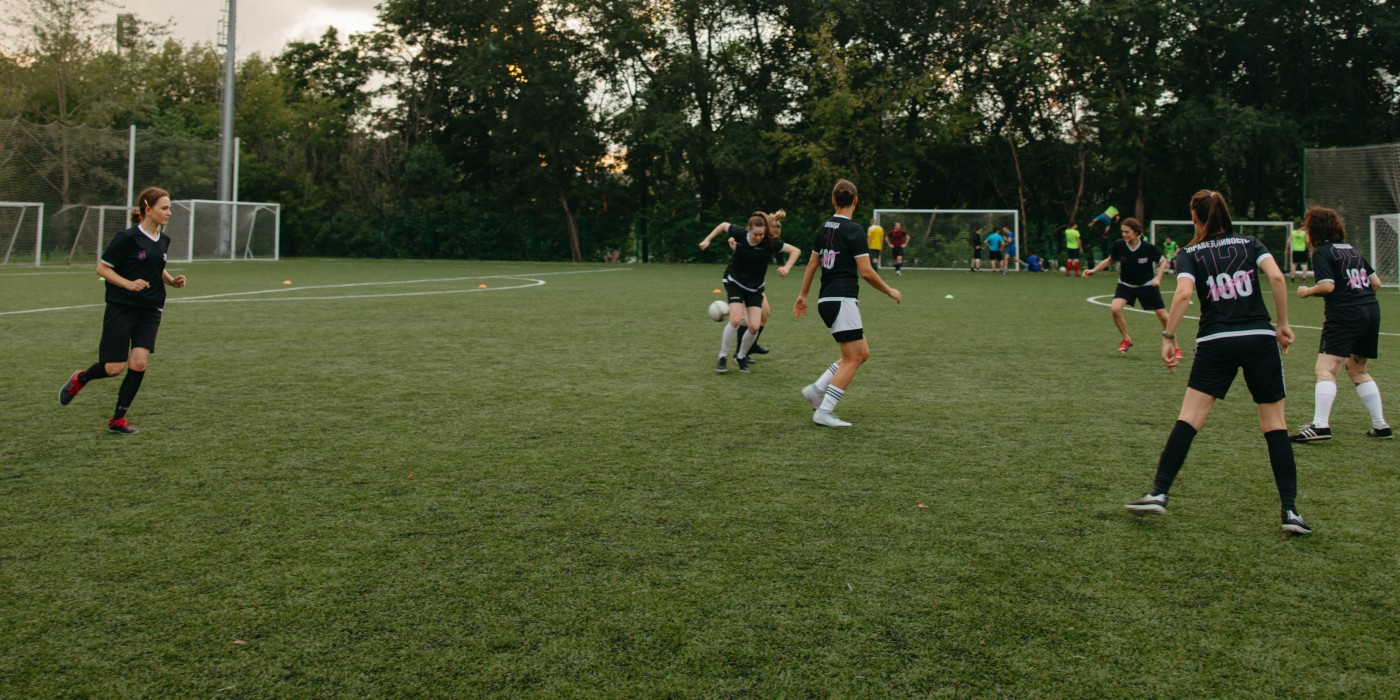Abuse of female footballers on TikTok club accounts highlighted in new study
Women footballers playing for major clubs are being targeted with an escalation of toxic comments on official social media accounts, new research on fans’ attitudes has shown.

A study by the Chester Business School with the University of Stirling Management School, Durham University Business School, the University of Manchester and Bournemouth University, has highlighted the extent of unchecked gender-based violence against female players on TikTok Premier League platforms.
The researchers set out to understand how fans respond to women’s football videos on TikTok, and, for seven months, analysed comments made in response to posts on the official accounts of Manchester United and Burnley football clubs.
They found four themes among the unmoderated comments, of: sexism - devaluing the women’s skills; misogyny - hatred or disdain towards the players; sexualised language - diminishing them to mere sex symbols and objects of desire, and demand for male-only space - not seeing the women’s teams as part of their club.
Dr Alex Fenton, Associate Professor and Associate Dean for International in the Faculty of Science, Business and Enterprise at the University of Chester said: “With the worldwide growth of women’s football and its presence on social media, it is essential to explore and highlight attitudes and culture which are fostered online.
“Bridging an important gap in current research, our findings demonstrate that while clubs are promoting their women’s football teams through TikTok, this becomes a platform for a significant amount of toxic content from fans surrounding the women’s game and targeting players themselves.
“Online toxicity incorporates subtle and more overt forms of sexism, misogyny and sexualised language, creating and reinforcing a hyper-masculine online identity, all of which openly belittle and demean women.
"Being made in response to official videos, the comments are entwined with the brand and stand in direct contrast to football clubs’ values of inclusion, diversity and zero tolerance for abuse of fans, players and staff, and must be addressed.”
He continued: “The study shows that clubs have to be vigilant in terms of preparing, releasing, and monitoring TikTok content. It underlines the urgent need for sport clubs to invest more time and resources to properly manage social media channels.
“On a wider scale, a more comprehensive understanding of the challenges and opportunities faced by professional football players in the era of digitalisation is needed, as well as the strengthening of work in areas such as equality and diversity education.”
The co-authors of the research echoed Dr Fenton’s response to the findings.
Dr Emma Kavanagh, Associate Professor in Sport Psychology and Safe Sport at Bournemouth University, said: “Globally, women’s football has seen an incredible rise in its profile and popularity in recent years which is obviously very welcome. However, we have found that a toxic culture among so-called fans is still able to thrive, and the fact it can appear on mainstream platforms and official club channels is particularly concerning.”
Dr Mariann Hardey, Professor of Digital Culture, Business and Computing at Durham University Business School, explained: “Our groundbreaking study sheds light on the alarming prevalence of sexist and misogynistic abuse targeting female footballers online. This is unacceptable. In our research, we show how social media platforms, football clubs, and fans should take action to create a more inclusive and supportive environment for female athletes.”
Dr Wasim Ahmed, Digital Business Specialist at the University of Stirling Management School during the study and now at the University of Hull's Business School, described how: “Worryingly, some of the toxic comments we looked at were being 'liked' by other users and attracting further disparaging replies, and appeared to be left unchecked by the clubs at the time. It was clear that the accounts were not being monitored on a regular basis for misogynistic comments or sexualised language. The danger is, then, that such exchanges become part of a tone that is acceptable to clubs and their followers.”
Dr Rosy Boardman, Senior Lecturer at the University of Manchester added: “Doing this research was quite difficult at times, witnessing the sexism and misogyny first-hand, especially as we’d been hopeful with such recent successes with the women’s Euros and World Cup, that more positive attitudes towards women players would be expressed.
“We hope that this research will help to make a difference, with clubs taking a more active approach to make their social media accounts more welcoming and friendly places for all fans. We welcome any further discussions with any clubs or interested parties in the hope of realising our aim.”
The research team studied the responses to more than 400 videos about the women’s teams posted on the clubs’ accounts - in total the videos had more than 70 million views and 59,000 comments.
The results have been published in the leading journal, European Sport Management Quarterly, and can be read in full here.